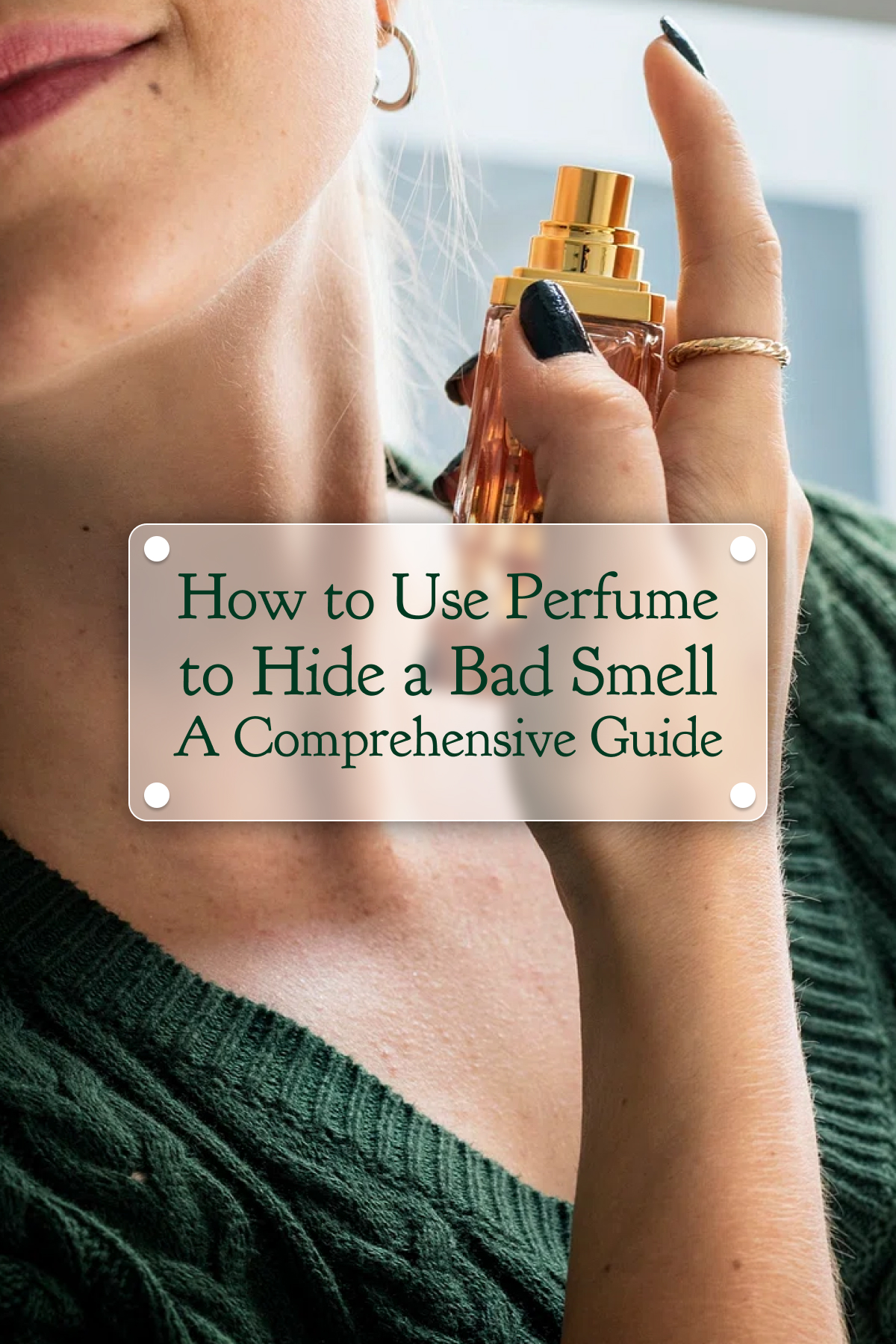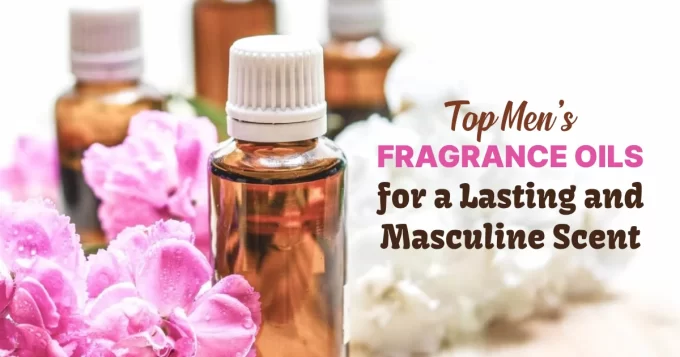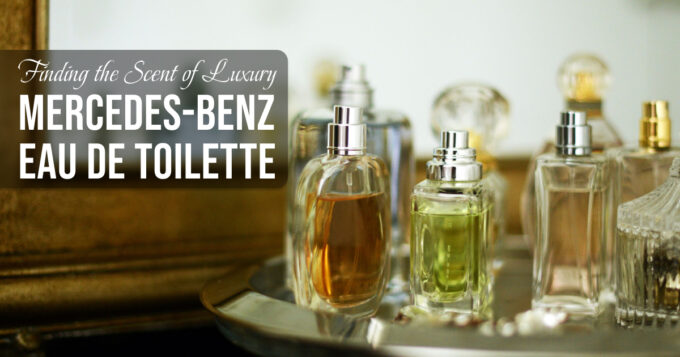Unpleasant odors can be an uncomfortable aspect of everyday life, whether caused by sweat, cooking, pets, or environmental causes. When used correctly, perfume can effectively disguise or eradicate these unpleasant odors. In this detailed guide, we’ll look at how to use perfume to mask undesirable odors, the science behind scent masking, and how to choose and apply perfume for the greatest results.
Understanding the Science of Scent Masking.
Understanding the mechanics of scent masking can help you utilize perfume to effectively cover undesirable odors. Our sense of smell is robust and tightly related to the limbic system in the brain, which regulates emotions and memories. This explains why particular smells can elicit intense emotions or memories.
When it comes to disguising unwanted odors, it’s more than merely replacing one smell with another. Effective scent masking entails eliminating undesirable odor molecules and substituting them with more pleasant ones. This can be accomplished through a variety of means, including the use of perfumes with specific notes that offset undesirable scents or the use of chemically neutralizing chemicals.
Choosing the Right Perfume
Before selecting a perfume, it’s crucial to discover the source of the unpleasant odor. Is it coming from your body, clothing, residence, or somewhere else? Knowing where the odor originated will help you choose the most effective perfume.
Choose Perfumes with Strong Base Notes: Perfumes consist of top, middle, and base notes. Base notes are the most persistent and can provide a solid foundation for disguising unpleasant odors. Choose perfumes with rich, deep base notes such as vanilla, musk, sandalwood, or patchouli. These smells have a great staying power and can successfully mask undesirable odors.
Fresh and clean perfumes, such as citrus, lavender, eucalyptus, and mint, effectively neutralize unpleasant odors. These aromas are frequently connected with cleanliness and can have a refreshing effect, making them perfect for covering odors in both personal and household settings. To further explore fragrance categories, it’s important to define chypre, which refers to a fragrance family characterized by a contrast of fresh citrus notes and a deep, mossy base, offering a unique and sophisticated scent profile.
Layering perfumes can improve the efficiency of hiding unpleasant odors. This entails utilizing numerous scented items, such as body wash, lotion, and perfume, with complementing fragrances. Layering creates a more strong and long-lasting aroma that effectively masks undesirable odors.
Tips for Using Perfume to Mask Bad Smells and Personal Odors
Shower and Cleanse Thoroughly: Begin by cleansing your entire body with a perfumed body wash or soap. This helps to remove the source of the stench and creates a clean foundation for your scent.
Moisturize with Scented Lotion: Massage a scented lotion or body cream onto your skin. Moisturizing helps to lock in the aroma and provide a barrier that allows the fragrance to last longer.
Use Perfume Strategically: Apply your preferred scent on pulse points like the wrists, neck, and behind the ears. These locations generate heat, which helps to spread the smell throughout the day. You can also spritz a small quantity on your garment for extra durability.
Clothing odors:
Pre-Treat with Fabric Fresheners: Before applying perfume, use fabric fresheners or odor-neutralizing sprays on your clothing. This minimizes any existing scents.
Spray Lightly on Clothing: Gently spray your perfume onto your clothing, concentrating on areas prone to odor retention, such as underarms or collars. Be careful not to overuse it, as some textiles might be stained or overwhelmed by powerful fragrances.
Home and Environment:
Use Room Sprays or Diffusers: To combat unwanted odors in your house, consider utilizing room sprays or diffusers infused with essential oils or perfumes. Scents such as lavender, lemon, and eucalyptus effectively neutralize household odors.
Target specific areas: Concentrate on places with the heaviest odors, such as kitchens, bathrooms, or pet areas. Use air fresheners, candles, or potpourri to keep a pleasant aroma throughout your home.
Additional Tips and Considerations
Avoid overpowering scents.
While it may be tempting to apply a powerful perfume to cover up unwanted smells, excessive perfumes can be just as unpleasant as the aromas you’re attempting to disguise. Strive for a balanced approach that produces a pleasant environment without overpowering the senses.
To maximize its effectiveness, perfume should be used alongside routine hygiene and cleaning measures. Maintain proper personal hygiene, clean your clothes and home on a regular basis, and identify the source of any lingering scents.
Check for Allergies and Sensitivities: Some individuals may experience allergies or sensitivities to specific smells. Before using a new perfume extensively, test it on a tiny patch of your skin or in a small space to check that it does not produce any negative responses.
If you’re concerned about chemicals or artificial smells, opt for natural or eco-friendly perfumes and odor-neutralizing solutions. Many manufacturers provide organic, non-toxic products that are both effective and environmentally friendly. One excellent choice to consider is Floral Street Chypre Sublime, a fragrance that embodies a commitment to sustainability while delivering a captivating scent experience.
Conclusion
Using perfume to mask unpleasant odors is an art form that includes fragrance science knowledge, product selection, and strategic application. Choose perfumes with powerful base notes, fresh and clean scents, and layer complimentary fragrances to successfully cover bad odors and create a more pleasant environment for yourself and others around you.
Remember to practice excellent hygiene and cleaning to address the underlying causes of foul odors, so that your perfume enriches rather than overwhelms. With these suggestions and practices, you may confidently use perfume to combat unwanted odors and enjoy a fresh, inviting aroma wherever you go.














